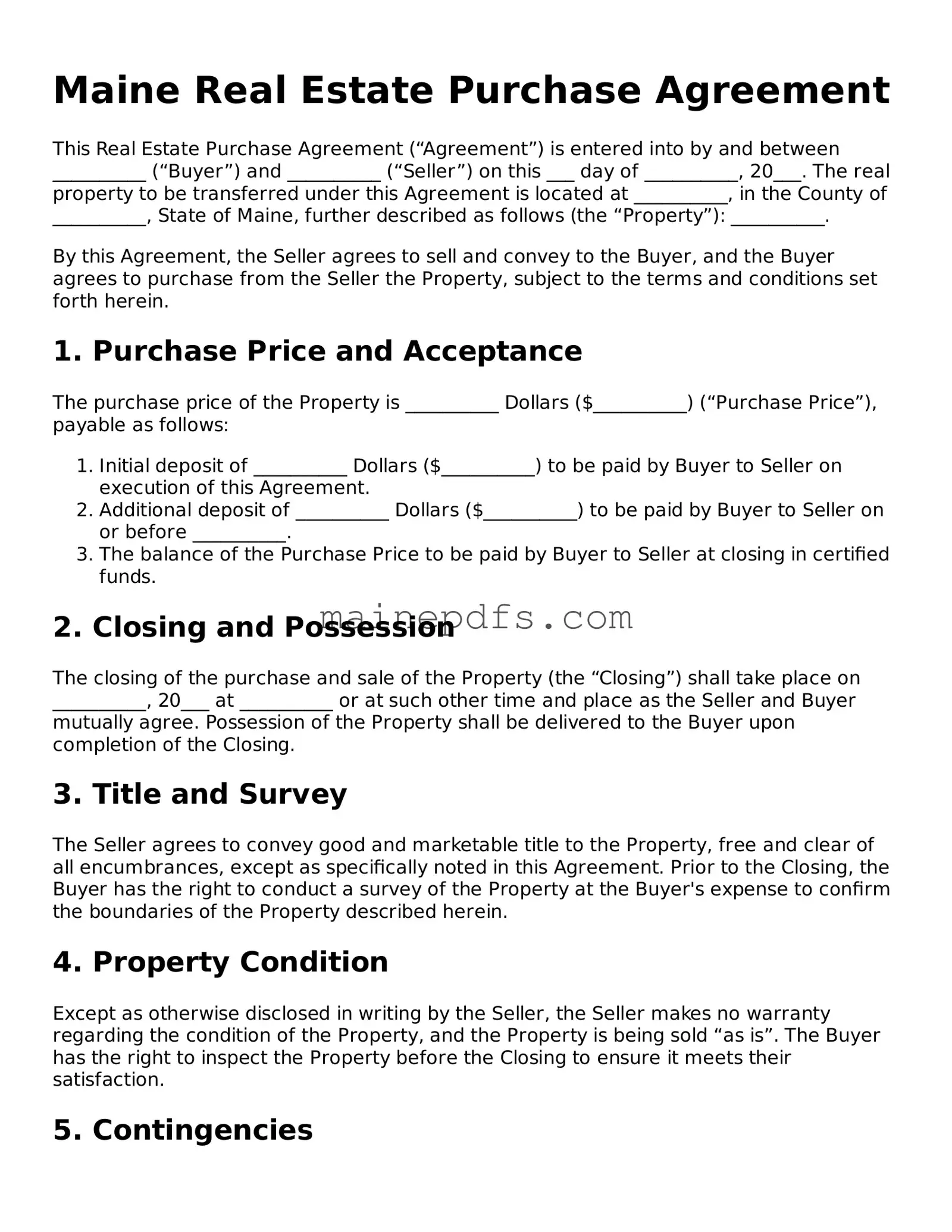Maine Real Estate Purchase Agreement
This Real Estate Purchase Agreement (“Agreement”) is entered into by and between __________ (“Buyer”) and __________ (“Seller”) on this ___ day of __________, 20___. The real property to be transferred under this Agreement is located at __________, in the County of __________, State of Maine, further described as follows (the “Property”): __________.
By this Agreement, the Seller agrees to sell and convey to the Buyer, and the Buyer agrees to purchase from the Seller the Property, subject to the terms and conditions set forth herein.
1. Purchase Price and Acceptance
The purchase price of the Property is __________ Dollars ($__________) (“Purchase Price”), payable as follows:
- Initial deposit of __________ Dollars ($__________) to be paid by Buyer to Seller on execution of this Agreement.
- Additional deposit of __________ Dollars ($__________) to be paid by Buyer to Seller on or before __________.
- The balance of the Purchase Price to be paid by Buyer to Seller at closing in certified funds.
2. Closing and Possession
The closing of the purchase and sale of the Property (the “Closing”) shall take place on __________, 20___ at __________ or at such other time and place as the Seller and Buyer mutually agree. Possession of the Property shall be delivered to the Buyer upon completion of the Closing.
3. Title and Survey
The Seller agrees to convey good and marketable title to the Property, free and clear of all encumbrances, except as specifically noted in this Agreement. Prior to the Closing, the Buyer has the right to conduct a survey of the Property at the Buyer's expense to confirm the boundaries of the Property described herein.
4. Property Condition
Except as otherwise disclosed in writing by the Seller, the Seller makes no warranty regarding the condition of the Property, and the Property is being sold “as is”. The Buyer has the right to inspect the Property before the Closing to ensure it meets their satisfaction.
5. Contingencies
- This Agreement is contingent upon the Buyer obtaining financing at prevailing market rates and terms satisfactory to the Buyer.
- This Agreement is contingent upon a satisfactory inspection of the Property by a licensed inspector chosen by the Buyer.
6. Default
If either party fails to fulfill their obligations under this Agreement (a "Default"), the non-defaulting party shall have the right to pursue any remedies available to it under the laws of the State of Maine.
7. Governing Law
This Agreement shall be governed by and construed in accordance with the laws of the State of Maine, without regard to its conflict of law principles.
8. Entire Agreement
This Agreement constitutes the entire agreement between the Buyer and Seller and supersedes all prior discussions, negotiations, and agreements, whether oral or written. This Agreement may be amended, supplemented, or changed only by an agreement in writing signed by both the Buyer and the Seller.
IN WITNESS WHEREOF, the parties have executed this Agreement as of the date first above written.
Buyer's Signature: __________
Seller's Signature: __________

